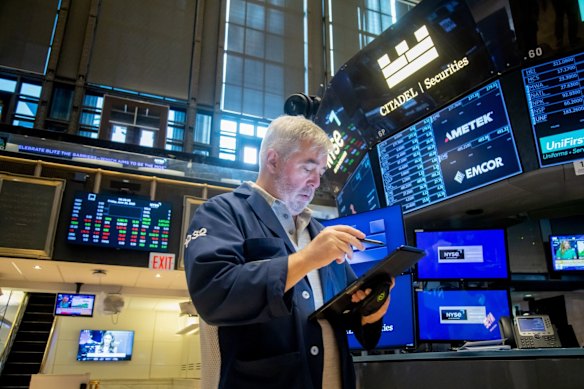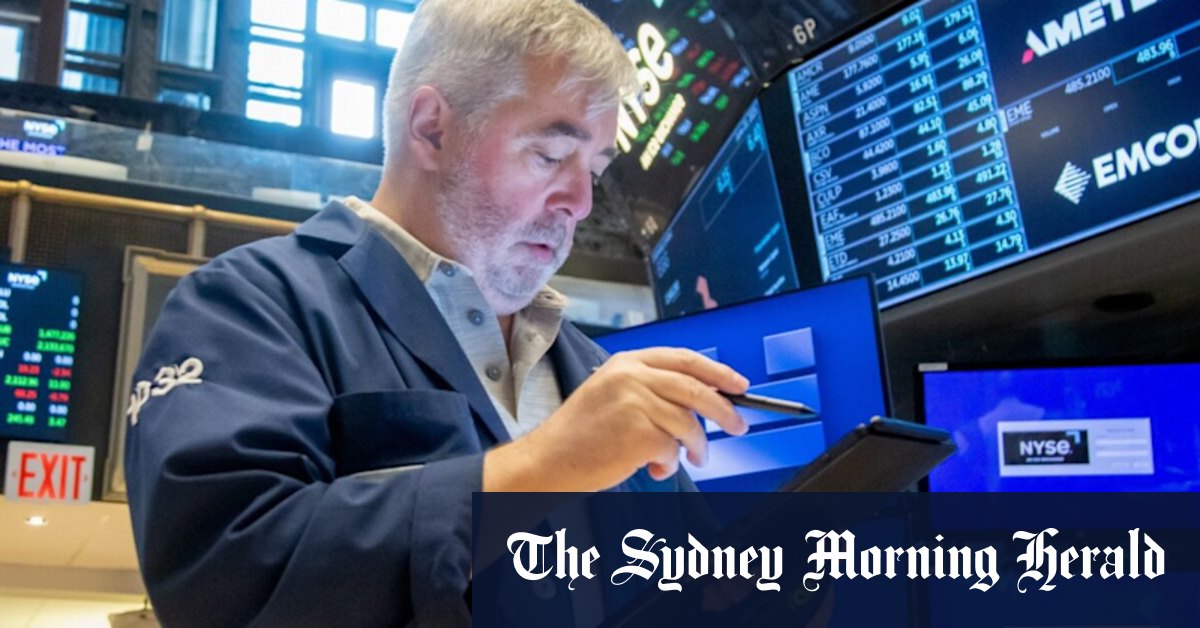US stock indexes are slipping following the latest discouraging signal on the US economy.
The S&P 500 was down 0.4 per cent in afternoon trading, coming off its best day since May, which followed its worst day since May. The Dow Jones fell 52 points, or 0.1 per cent and the Nasdaq composite was 0.4 per cent lower.

Wall Street has dipped following another discouraging report on the us economy.Credit: Bloomberg
The Australian sharemarket is set for gains, with futures at 4.55am AEST pointing to a rise of 19 points, or 0.2 per cent, at the open. The ASX surged 1.3 per cent to close at a record high on Tuesday. The Australian dollar was flat at 64.67 US cents at 5.11am.
A weaker-than-expected report on activity for US businesses in the transportation, retail and other services industries added to worries that President Donald Trump’s tariffs may be hurting the economy. But increased hopes for coming cuts to interest rates by the Federal Reserve, along with a stream of stronger-than-expected profit reports from US companies, are helping to keep the losses in check.
Edgewell Personal Care, the company behind the Schick, Playtex and Banana Boat brands, fell 21.6 per cent after reporting lower profit and revenue for the latest quarter than analysts expected. CEO Rod Little said it was a very weak season for sun care in North America, while tariffs are acting as a drag on profits.
Caterpillar shifted between small gains and losses after likewise reporting a profit that fell short of analysts’ expectations. Its operating profit sank 18 per cent from a year earlier, largely due to tariffs making its manufacturing costs more expensive. The stock was most recently up 0.2 per cent.
All kinds of companies have been telling investors how much they expect tariffs to shave off their earnings this year, and trade policy was one of the most common topics US services businesses talked about in the latest monthly survey compiled by the Institute for Supply Management about their activity.
“Tariffs are causing additional costs as we continue to purchase equipment and supplies,” one company in the health care and social assistance business said, for example. “Though we need to continue with these purchases, the cost is significant enough that we are postponing other projects to accommodate these cost changes.”
Another business in the real estate, rental and leasing industry told the institute that economic “uncertainty remains the dominant theme. However, the tariff talk has turned out to be much more bluster than actual policy, and businesses have seemed to tune out the noise.”

